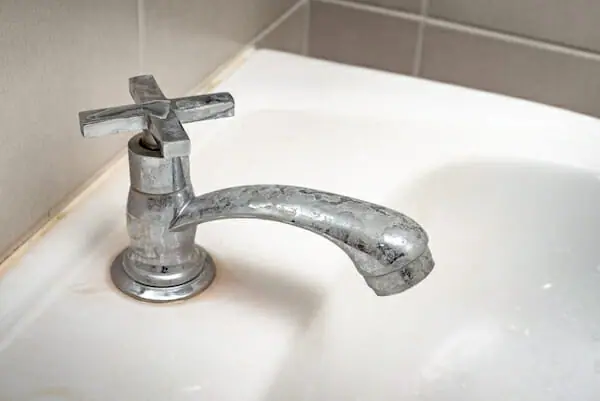Did you recently move into a new home and notice something seems off about your water? Maybe it tastes unusual, or perhaps you’re seeing spots left behind on your dishes. If you suspect there’s an issue with your water, hard water could be the culprit.
Water hardness varies significantly across the country. While lifelong residents of Arizona might be used to it, those who have relocated from regions like the East Coast or the Pacific Northwest may find it a new challenge. The hardness of water is determined by its source. As groundwater flows through mineral-rich soil and rock, it dissolves elements like calcium and magnesium, which end up in your water supply. Water hardness is measured by the concentration of calcium carbonate, expressed in milligrams per liter.
According to the U.S. Geological Survey, some of the hardest water in the nation is found in states like Texas, New Mexico, Kansas, Arizona, and Southern California. If you’re new to the Phoenix area, here are some common signs that your home might have hard water.
Symptoms of Hard Water

If your home has hard water, you’re likely experiencing some unpleasant side effects. Common indicators of hard water include:
- Dry, itchy skin
- Dull, filmy hair after showering
- Soap that doesn’t lather well
- Dull, faded clothing
- White, chalky mineral deposits on faucets and fixtures
Why Does Hard Water Cause Problems?

Hard water impacts your daily life, especially when it comes to cleaning. Its high mineral content reacts with soap to create a sticky residue known as soap curd. This residue can:
- Leave scum in your shower and tub
- Make your hair feel grimy and weighed down
- Dry out your skin, leading to irritation
Synthetic detergents can also lose some of their effectiveness in hard water because the minerals partially deactivate their cleaning agents. This makes it harder to remove dirt and bacteria from your skin and surfaces.
In addition to these issues, soap curd can prevent your skin from returning to its normal, slightly acidic state, increasing the likelihood of irritation.
When it comes to laundry, hard water can cause soap curd to become trapped in fabric, making clothing feel stiff and scratchy. This buildup can also dull colors, shorten the lifespan of your clothes, and make them feel less clean.
How to Get Rid of Hard Water

The most effective way to eliminate hard water in your home is to install a water softener. These systems use polystyrene beads bonded with sodium ions to remove calcium and magnesium from your water supply. As water passes through the softener, the hard minerals are exchanged for sodium ions, resulting in water that is easier to use for cleaning and won’t damage your pipes.
A water softener works throughout your home, improving water quality from every tap and fixture. However, before investing in a water softener, it’s important to determine if you actually have hard water. Use the checklist below to identify the symptoms of hard water and decide if a softener is right for your home.
How to Tell If You Have Hard Water (Checklist)

If you’ve moved to the Phoenix area and suspect hard water may be causing problems, check for these telltale signs:
- Mineral buildup on fixtures: Are there white, chalky deposits around your faucets?
- Persistent soap scum: Do you notice a soapy film in your tub or on your shower curtain, no matter how often you clean?
- Water heater issues: Does your shower fail to heat up properly? Hard water can cause mineral deposits to build up on the heating element, leading to failure.
- Dry, itchy skin: Has your skin felt drier since moving into your new home?
- Dull clothing: Are your clothes losing their vibrant colors after washing?
- Stiff, rough clothing: Do your clothes feel coarse or unclean, even after a full wash and dry cycle?
- Difficulty lathering soap: Do you find yourself using more soap to create a lather when washing dishes, your hair, or your hands?
- Flat, dull hair: Has your hair lost its shine and volume?
- Spots on dishes: Are your “clean” dishes left with white stains or water spots?
- Strange water odor: Does your water have an unusual smell?
- Metallic or earthy taste: Does your water taste off, like metal or dirt?
- Appliance wear and tear: Are your appliances wearing out more quickly than expected?
- Clogged fixtures or pipes: Are mineral deposits blocking your pipes or reducing water flow from faucets?
- Low water pressure: Is the water pressure from your faucets weaker than it should be?
- Squeaky clean feeling on skin: Does your skin feel overly squeaky after showering, a sign of leftover grime not fully rinsing away? (Soft water, by contrast, feels slippery.)
If you’ve checked off several of these symptoms, hard water could be the problem in your new home.
Take Action: Consult the Experts

Hard water can be frustrating, but the good news is there’s a reliable solution. At Clear Water Concepts, our water softening experts can evaluate your home’s water and recommend the best system to address your needs. A water softener can dramatically improve your home’s water quality, protecting your appliances, improving your skin and hair, and making everyday tasks easier.
Ready to address hard water in your home? Contact Clear Water Concepts today for a comprehensive water evaluation and personalized recommendations.


